Amjad Sabri, a master of qawwali, the devotional music that is wildly popular across the Indian subcontinent and well beyond, was gunned down in Karachi, Pakistan. The man who spent his life singing the praises of the prophet Muhammad, continuing a centuries-long tradition of musical veneration, was accused of blaspheming the prophet, and he was executed for it.
During Ramadan.
That is so important, so painful and so hard to make sense of for the many Muslims - particularly for Pakistanis like me - because qawwali is part of our religion. At a time when Islam is reduced to warlike, uncivilized violence and portrayed as an angry, intolerant faith, qawwali is evidence of something different. The historic spread of Islam through much of what we call the Muslim world happened largely through architecture, calligraphy, poetry, but perhaps above all, music.
In South Asia, home to an astonishing one-third of the world's Muslims, preachers and poets composed verse that survived for centuries, embedding Semitic values into local languages, a mix that was as intoxicating as it was unique. Qawwali is the soundtrack of that tradition.
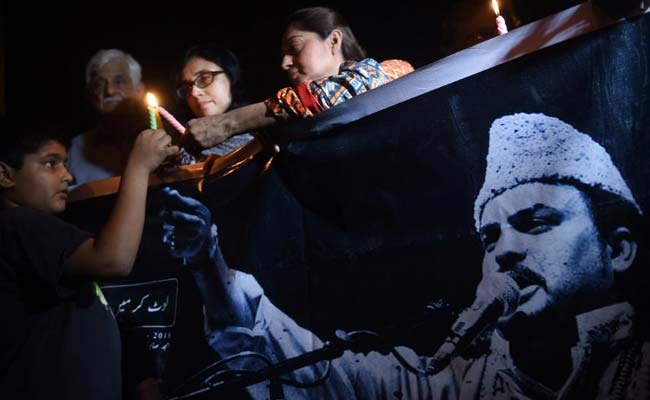
Pakistani activists light candles in Karachi to mourn Amjad Sabri. (AFP photo)
Masters of qawwali, known as "qawwals," are world famous. In fact, qawwali was the first concert I ever went to. His name was Nusrat Fateh Ali Khan, and only later would I know enough about who he was, and what he sang, that my mind could be fully blown.
When I entered graduate school, it was to study Islam in South Asia, which means the many ancestries -Punjabi and Urdu, Hindu and Muslim, Arab and Turkish, Eastern and Western -that gave birth to me. There was a lot there for me to try to make sense of, an attempt to grasp not just facts and figures, but emotions and feelings.
My parents were religious, and very much socially conservative, and taught us that we shouldn't dance in public, and certainly never men with women. But when I was 11, Nusrat Fateh Ali Khan came to the University of Massachusetts at Amherst, where I was in grad school, and this very large man, cross-legged on a carpet spread out on the stage, joined by a team of musicians, began singing. Now, Nusrat was perhaps the greatest qawwal of all time; when I was growing up, the only names mentioned alongside him were the Sabri Brothers - one of whom was the father of Amjad Sabri.
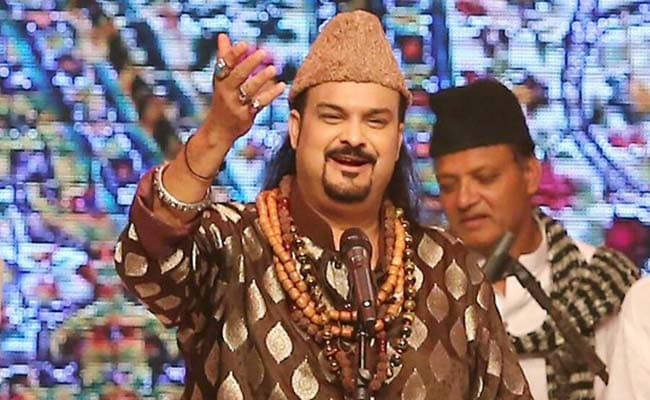
Amjad Sabri during a performance in 2015. (AFP photo)
History, heritage, theology, piety.
Qawwali emerges from the conviction that, before the majesty of God and the span of Creation, reason fails; only art, only music can possibly evoke the deepest feelings stirred in the human soul. So you have a musical form that reflects, in its very effect on you, the nature of faith as Muslims once believed it to be: A deep, romantic love, between a dependent human being, and an all-powerful Divine.
Here's Nusrat performing "Allah Hu", a simple, stunning song, whose very performance embodies the meaning of artistic endurance, which glorifies God by drawing attention to His utter otherworldliness, the translation of Islam's radical monotheistic theology into rhyming verse: "when this land was not, when this sky was not, when this here was nowhere. . .. You, You. . .." Here's a Pakistani rock band, Junoon - the name means ecstasy, passion, madness - performing the same song with a modern spin.
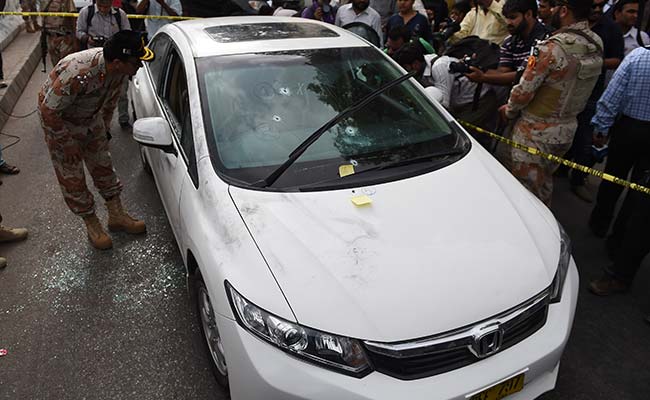
Pakistani security officials inspect the bullet-riddled car of Sufi musician Amjad Sabri. (AFP photo)
Maybe that's why Sabri's assassination hit so hard. Not just who we lost, or that we lost a piece of ourselves, but that many Muslims, especially Pakistanis and Indians, see qawwali as a bond between themselves and their history.
On Wednesday, I heard from many friends and colleagues, many but not all Pakistani, mourning Amjad Sabri's death. One woman said she fought back tears the whole day.
Journalist Murtaza Hussain of the Intercept said it hit particularly close to home. "It was the music we grew up hearing around the house," Hussain recalled. Not just Sabri, he meant, but all qawwali.
"It was distinctively Pakistani and was our own unique expression of Islam. That's why this killing really strikes at the heart and soul of Pakistan."
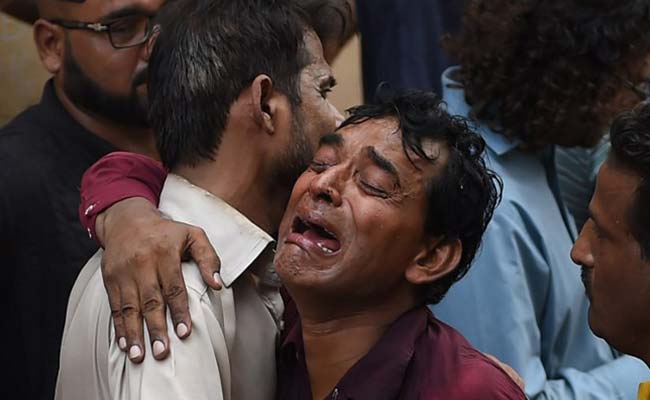
Pakistani relatives mourn the death of Sufi musician Amjad Sabri. (AFP photo)
Sabri's assassination happened in a Pakistan that itself would not exist without poetry - the great 20th century philosopher and poet, Muhammad Iqbal, might be said to have willed the Pakistan movement into existence. It was Iqbal's poetry that roused the masses, that animated the idea of an Indo-Muslim homeland, that is read in every part of the Muslim world today. And that poetry is, as you would expect, also performed and sung.
That's the culture Sabri came from, and that he was taken from.
But I don't think it's a time of mourning all the same, because I don't think Sabri himself would have wanted us to see his death that way. The Sufis call the day of your death the wedding day, the day the lover leaves his temporary home to join his Beloved. It is a day for songs, for music, for crying out to God above and stamping your feet against the ground below, which is pretty much the best way I can think to describe our time here in this world, as long as it lasts.
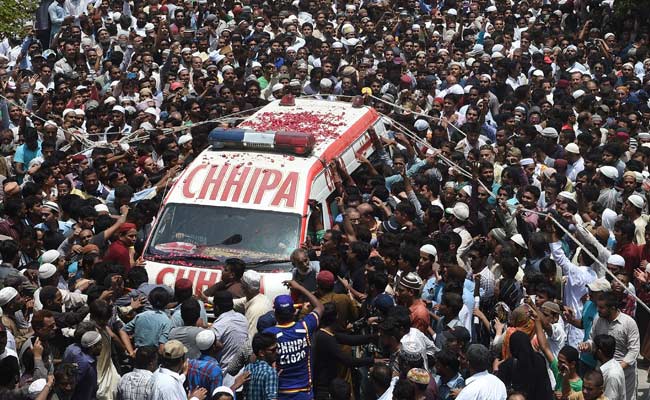
Pakistani mourners gather around an ambulance carrying the coffin of Sufi musician Amjad Sabri during his funeral in Karachi. (AFP photo)
Nusrat Fateh Ali Khan, a very large, very intense man, who seemed to be operating on a different plane of existence, who was among us, but not really with us. A hall where men and women, my aunties and uncles, as we addressed them, who always seemed so much older, so distant, so disconnected from the world I was born into, very soon jumped out of their seats and let loose, and turned round and round, laughing and dancing and clapping, ageless and joyous, as if they had, at last, come home. This was the music that connected generations of Muslims, that gave us a shared religious language.
I hardly understood a word out of his mouth, and yet I cannot forget it.
Which was, I suppose, the point.
(Haroon Moghul is a senior fellow and director of development at the Center for Global Policy. His next book, "How to be a Muslim," will be published in 2017.)
© 2016 The Washington Post
(Except for the headline, this story has not been edited by NDTV staff and is published from a syndicated feed.)


